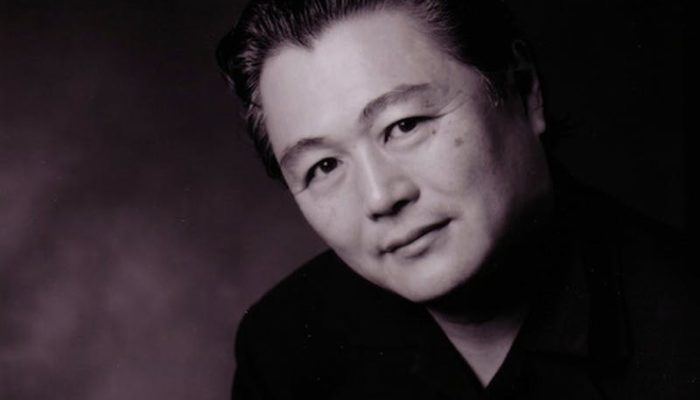By Sarah Ladipo Manyika
This excerpted essay was originally featured on AGNI Online.
My son’s self-portrait, age fifteen.
Work in progress.
Earlier this year I decided to read Joe Brainard’s cult classic, I Remember. The book had long intrigued me for I had heard that it was widely taught in creative writing courses and was a favorite of many authors, including several well-known authors whose work I admire. I was immediately drawn to Brainard’s style, each line starting with the words “I remember.” As I read it, I found myself jotting down remembrances of my own, complementing Brainard’s memories of America with my memories of Nigeria.
I was enjoying this little book, reading it slowly, taking my time to appreciate the beauty and originality of the writing while remembering and reminiscing. It was a soothing and creative project until I came to this:
I remember feeling sorry for black people, not because I thought they were persecuted, but because I thought they were ugly.
I remember gasping.
I remember thinking, So this is what Zora Neale Hurston meant when she wrote, “I feel most colored when I am thrown against a sharp white background.”
I remember ugly.
I remember not wanting to continue, but continuing all the same.
I remember it got worse several lines later when Brainard writes:
I remember speculating that probably someday science would come up with some sort of miracle cream that could bleach skin, and Negroes could become white.
I remember thinking, “So this is his solution, to make everyone white?”
I remember returning to Auster’s glowing preface.
I remember wondering if Auster felt anything close to my shock and sadness when reading those lines.
I remember not wanting to be disappointed in Auster.
I remember helping myself to some chocolate, and then to more.
I remember not being hungry, but eating as though starved.
I remember wondering if I was over-reacting.
I remember wondering if I was becoming consumed with race.
~
Thirteen years ago I wrote an essay entitled “Oyinbo,” an autobiographical account of my personal experiences with race and racism. The narrative began with my countries of origin, Nigeria and England, and my parent’s marriage—with my white mother who was disowned by her parents for choosing to marry a black man. The essay then wound its way through other places where I have lived or traveled—France, Zimbabwe, the U.S., and South Africa. I wrote of the social construction of race as found in America and Southern Africa and how these particular societal constructions of race were largely alien to me, having been raised in Nigeria. I also wrote of race in the U.K., which was partially eclipsed by the prevalence of social class, Britain’s preferred mode of social segregation.
Before we were married, my husband asked me if I identified as “black.” I remember thinking this an odd question. I thought it should be obvious that I identified as black even though I was, “technically,” half black and half white. But right there, in the making of the half-black and half-white observation, was, perhaps, where some of my husband’s concerns lay. What I didn’t fully appreciate at the time was the history behind my husband’s question. He had grown up in apartheid Rhodesia where he experienced segregation and racism very much as African Americans would have experienced it in 1960s America. It was important, therefore, for my husband to feel reassured, especially for the sake of any future children, that they would feel secure in their “race.” I, in contrast, raised in Nigeria during the 1970s and ’80s, did not grow up with race as a defining element of my upbringing or identity. Nigeria has no history of apartheid and no established tradition of societies structured along racial lines.
Twenty years of living in America has cured me of any whimsical notions I once held about the fluidity of racial categorization, and race now presents me with the following dilemma. When talking about race there is always a part of me that feels as though I am perpetuating and legitimizing it, giving it the fixed status that it should never have. But then not to talk about race, or to try to ignore it, is not only impractical but also irresponsible. I therefore try to follow what I feel James Baldwin so wisely advocates in many of his essays: to remain committed to the struggle against racism while trying to keep my heart free of hatred and despair. But with every passing year this has proven more difficult, even for someone who, by virtue of my gender, fair skin, and privileged socio-economic status is frequently cocooned from the nastier manifestations of racial discrimination. It has become increasingly hard to keep my heart free of despair while noticing the effects of discrimination, especially as it pertains to young black men in America. And since the birth of my son it has become increasingly personal. I ended “Oyinbo,” wondering what my son’s experience of race might be like when he became a young man:
My son Julian was pink with bright blue eyes when he was born, but now he has my coffee-and-cream colored complexion and dark brown eyes. Everyone says he, two years old, is cute—Oh, he’s adorable! Oh, he’s darling! What a cutie! He’s such a looker!—It warms my heart but I wonder, when he’s a teenager, tall, gangly, and black, what will people say?
Continue reading the essay here.
SARAH LADIPO MANYIKA’s first novel, In Dependence, is published by Legend Press (London) and Cassava Republic Press (Abuja). She was raised in Nigeria and has lived in Kenya, France, England, and the United States. (5/2015).




